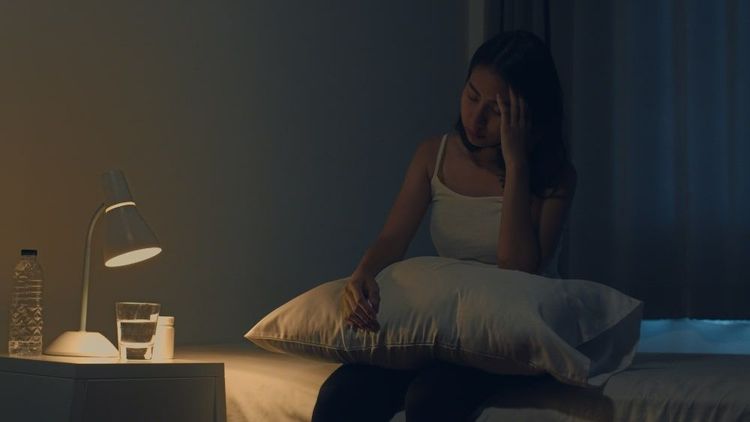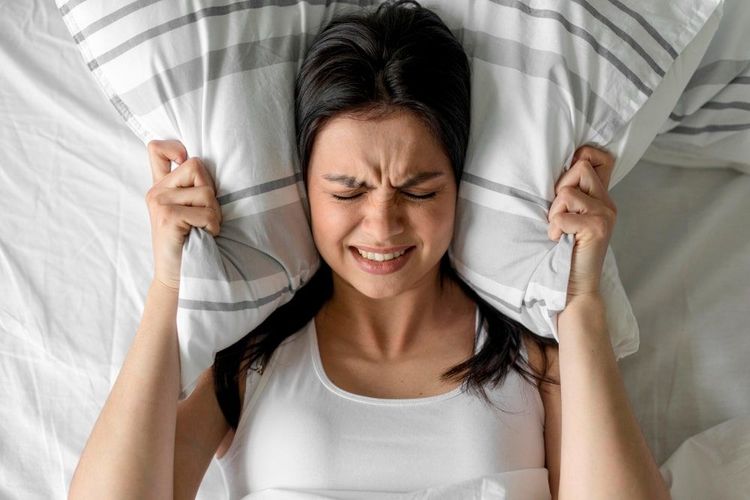Sleep and mood are old companions. When one suffers, the other rarely stays untouched. Depression, anxiety, and stress can twist sleep patterns beyond recognition—turning nights into battles against racing thoughts or endless wakefulness.
Antidepressants often promise relief from emotional pain. Yet many people quickly notice that these drugs can change the way they sleep. Some report deeper rest, while others complain of restless nights. The connection between antidepressants and sleep is more complex than it seems at first glance.
Understanding this relationship helps patients and caregivers make better decisions. It’s not just about managing depression; it’s about preserving the rhythm of life that good sleep brings. So, what exactly happens when antidepressants meet your sleep cycle?
Can Antidepressants Help You Sleep?
Antidepressants are designed to lift mood by adjusting brain chemicals like serotonin, norepinephrine, and dopamine. But their side effects often reach beyond emotions.
Many people feel sedated shortly after starting treatment, especially with older classes like tricyclic antidepressants (TCAs) or certain serotonin-antagonist drugs. For example, medications like trazodone or mirtazapine are sometimes prescribed specifically for patients struggling with insomnia. These drugs calm the nervous system and reduce the time it takes to fall asleep.
However, not all antidepressants bring drowsiness. Some can make you more alert. The reason lies in how each medication interacts with neurotransmitters. A drug that boosts serotonin can influence melatonin levels, which in turn affects sleep-wake cycles.
The key takeaway is simple: antidepressants can either help or hinder sleep, depending on their type and dosage. Your experience will depend on your brain chemistry, medical history, and how your body adapts to the drug over time. Doctors often adjust timing—morning or evening doses—to reduce sleep disruptions.
So yes, antidepressants can help you sleep, but the result isn’t always predictable. Think of it as finding harmony in a constantly shifting orchestra.
What Is an SSRI?
To understand why antidepressants affect sleep differently, it helps to know about the most common type—Selective Serotonin Reuptake Inhibitors (SSRIs).
SSRIs work by blocking the reabsorption of serotonin in the brain. This increases serotonin levels, which improves mood and helps regulate emotional balance. Common SSRIs include fluoxetine (Prozac), sertraline (Zoloft), and escitalopram (Lexapro).
These medications are favored for their safety profile compared to older antidepressants. But they also come with quirks that can change how you sleep. Serotonin doesn’t just influence happiness—it also controls your body’s internal clock, temperature, and dreams.
When serotonin levels rise, REM sleep (the dream phase) often decreases. That means fewer dreams, lighter rest, or frequent awakenings. Some patients describe it as sleeping long but waking up unrefreshed. Others feel wired, as though the brain refuses to power down even when tired.
Adjusting to SSRIs takes time—usually several weeks. During this phase, sleep may fluctuate between exhaustion and alertness. Patience and medical supervision are key. Doctors might tweak timing or combine treatments to reduce nighttime disruption.
SSRIs aren’t inherently bad for sleep. They simply alter the brain’s rhythm, which must eventually find a new balance.
Do Antidepressants Cause Insomnia?
Here’s where confusion often begins. Many people start antidepressants expecting emotional calm, only to find their sleep slipping away.
Insomnia linked to antidepressants can occur for several reasons. Some medications stimulate the central nervous system, making it difficult to wind down at night. For instance, fluoxetine and venlafaxine are known for their energizing effects. Taking them too late in the day can lead to long, restless nights.
Another factor involves chemical adjustment. As the brain adapts to new serotonin levels, sleep patterns may temporarily shift. This adaptation period often lasts a few weeks, though for some, insomnia can persist longer.
Even when sleep eventually returns, it might feel different. Dreams become vivid, sometimes strange, as REM cycles fluctuate. People might wake up sweating, clenching teeth, or recalling surreal storylines that fade by morning.
It’s worth noting that depression itself can cause insomnia. So, when a patient reports poor sleep after starting antidepressants, doctors must decide whether the drug or the disorder is to blame. Often, both contribute.
The best approach is to observe patterns. Keeping a sleep diary—tracking bedtime, wake time, and rest quality—helps doctors make informed adjustments. Changing dosage time or pairing medication with behavioral therapy often solves the problem.
In essence, antidepressants don’t always cause insomnia—but they can trigger it in sensitive individuals. The solution usually lies in fine-tuning treatment, not abandoning it.
Antidepressant Withdrawal and Sleep
Now comes a phase few people discuss openly: withdrawal. When someone stops antidepressants too quickly, their sleep can unravel faster than expected.
This happens because the brain suddenly loses its artificial serotonin support. It must relearn how to balance mood and rest naturally. During this transition, symptoms like vivid dreams, night sweats, and insomnia are common. Some even experience “brain zaps”—short bursts of electrical sensations while drifting off.
The intensity of these effects depends on the drug’s half-life and how abruptly it’s stopped. SSRIs with shorter half-lives, like paroxetine, tend to cause stronger withdrawal reactions than longer-lasting ones like fluoxetine.
Doctors recommend tapering doses slowly. This gradual process allows neurotransmitters to adjust gently, reducing nighttime chaos. Many patients find sleep stabilizes within weeks when withdrawal is managed properly.
There’s also a psychological side. For years, the brain has relied on external chemistry for equilibrium. Removing that crutch can heighten anxiety, which further disrupts sleep. Mindfulness practices, light exercise, and consistent bedtime routines can soften the transition.
Stopping antidepressants should never be impulsive. A medical plan and emotional support network make all the difference between recovery and relapse. Sleep serves as both a signal and a stabilizer during this stage. When rest improves, it’s often the first sign that the brain is finding balance again.
Tips for Sleeping Better While Taking Antidepressants
Finding peace between medication and rest is possible. It requires small adjustments and awareness of how lifestyle interacts with brain chemistry.
1. Adjust Medication Timing
Ask your doctor about switching the time you take your dose. Some antidepressants cause morning drowsiness, while others keep you alert. Moving the dose to a different part of the day often helps.
2. Build a Consistent Routine
Consistency tells the body when it’s time to rest. Go to bed and wake up at the same hour daily—even on weekends. Over time, your brain links these cues to sleep readiness.
3. Watch Caffeine and Alcohol
Both substances interfere with antidepressant metabolism. Caffeine delays sleep onset, while alcohol disrupts REM cycles. Try limiting intake after mid-afternoon.
4. Create a Sleep-Friendly Space
A calm environment makes a world of difference. Keep the room cool, dark, and free of screens. A gentle fan or white-noise app can mask outside disturbances.
5. Incorporate Light Movement
Gentle exercise—like yoga or walking—helps regulate serotonin and reduce stress. Just avoid intense workouts right before bed.
6. Manage Expectations
Sleep may never feel exactly the same while on antidepressants, and that’s okay. Focus on how refreshed you feel rather than the number of hours slept.
7. Talk Openly With Your Doctor
Never adjust dosage without guidance. Your healthcare provider can recommend supplements like melatonin or alternative medications with milder sleep effects. Communication is your best ally here.
These steps might seem simple, but together they rebuild the foundation of restful nights.
Conclusion
The relationship between antidepressants and sleep is both intricate and deeply personal. For some, medication restores peace of mind and deeper rest. For others, it brings unwanted sleeplessness and fatigue. The deciding factors include medication type, dosage, and individual brain chemistry.
The ultimate goal is balance—emotional and physical. Good mental health cannot thrive without quality sleep, and vice versa. Working closely with a healthcare provider ensures that treatment supports both.
If your nights feel restless since starting antidepressants, don’t despair. Solutions exist, from dosage adjustments to lifestyle shifts. What matters most is patience and persistence. Healing takes time, and so does finding the right combination of rest and medication.
Remember: mental recovery and restorative sleep walk hand in hand. When both align, you reclaim more than rest—you reclaim yourself.




